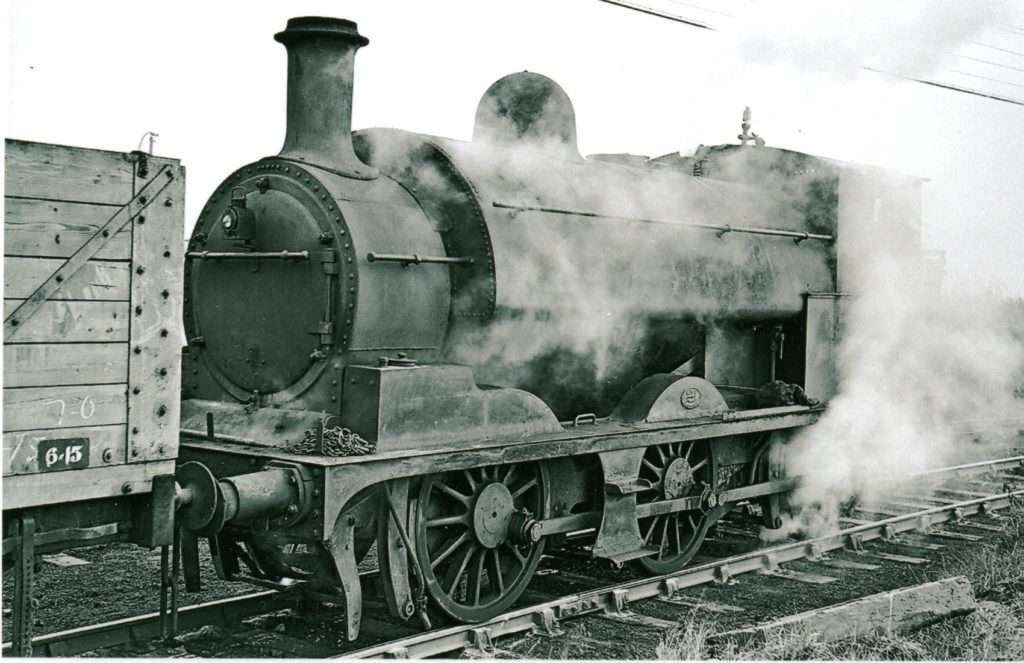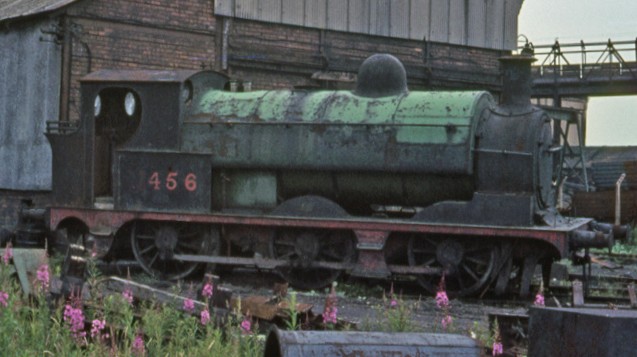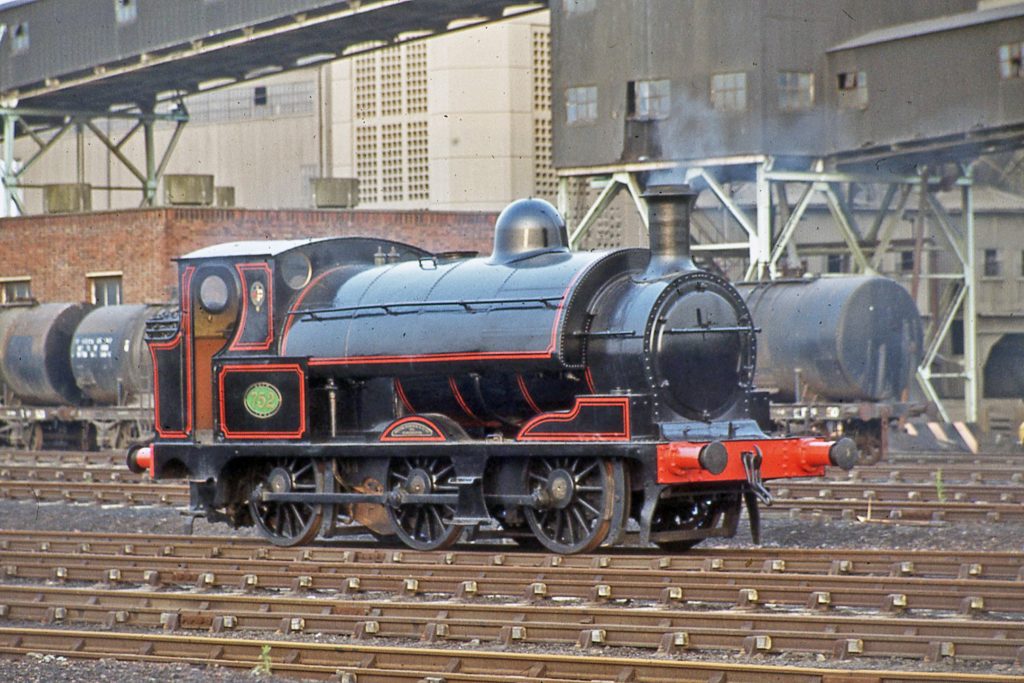752 0-6-0 built Beyer Peacock 1881, rebuilt as tank by L&YR 1896
CURRENT STATUS – restoration of 752 to steam was completed in January 2020 and its first running-in trips took place on 22nd and 23rd January 2020 between Buckley Wells in Bury and Summerseat, when all went well.
Relaunch events in February for Trust members and supporters, followed by a full relaunch at the East Lancashire Railway in their Spring Gala on 6th to 8th March 2020 were a great success. 752 also ran a number of photographers charter specials, the last one being on 17th March, when it was one of the last operational steam locos before the Government enforced lockdown arrangements due to Coronavirus.
In September and October 2020, repair work has been completed to prevent steam leaks on the cylinder glands, caused by pitting of the piston rods during the long overhaul, initial testing shows that this has been successful.
Steam heat equipment is being fitted to permit expected future use.
See Latest News and Video Online pages for more information.
January and February 2022 – 752 as 51456 was on hire to the Spa Valley Railway in Kent but is now back at the East Lancashire Railway
June and October 2022 – 752 featured in the East Lancashire Railway’s celebration of the centenary of the merger of the L&YR and L&NWR in 1922, events will take place on 18th and 19th June 2022, also 14th to 16th October 2022.
October 2023 – 752 featured in the East Lancashire Railway Autumn Steam Gala over the weekend of 13th to 15th October 2023.

752 was built in 1881 at the Manchester works of Beyer Peacock as one of hundreds of 0-6-0 tender locomotives built for the L&Y Railway, who rebuilt it in April 1896 to its current ‘Saddletank’ design like all but 50 of the class – preserved 957 is one of the 50. 752 became 11456 of the LMS Railway at the 1923 Grouping and continued in service on the old L&Y system in the Wigan area until the next major event in its life, withdrawal by the LMS in 1937 and subsequent sale to The Blainscough Colliery Company for their Welch Whittle Colliery near Wigan as seen here.
In 1947 becoming the property of the National Coal Board (NCB), 752 continued in service at Chisnall Hall (as seen here) and Standish collieries in the Wigan area until taken into the NCB’s Kirklees works at Wigan. By April 1960 752 was back at work at Parsonage Colliery near Leigh where, apart from a brief spell at Bickershaw Colliery, 752 stayed until falling out of use by 1966 and acquisition from the NCB in 1968.


The L&Y Saddletanks Fund (predecessors of the Trust) negotiated with the NCB for over two years before taking over 752 as a donation from them. One interesting facet of the negotiations was that the NCB had serious concerns that the new owners would fail to restore 752 and profit from its scrap value, thereby depriving the NCB of legitimate income, 752 being scheduled for scrapping at the time as seen here at Parsonage in 1966 in this photo from Robin Lush.
At the time that 752 came into the Fund’s ownership, it was still possible to have a steam locomotive transported by rail, and arrangements were made for delivery via a very circuitous route from Parsonage through Lancashire to the premises of Yates Duxbury in Heap Bridge near Heywood, where restoration started. For the last stage of the journey the train locomotive was the preserved 8F 48773, when it was still in normal service.


With restoration well advanced, the Fund brought 752 by road transporter to Haworth on the Worth Valley Railway, where the first steaming was made and 752 saw occasional service on service trains and specials, as well as participating in the Rainhill 150 event and the opening of the Liverpool Road site in Manchester. Following expiry of the 10-year boiler certificate in 1984 752 became a static exhibit awaiting further overhaul.
In the next five years the Fund had become the L&YRPS and within the following five years the newly-formed L&YR Trust had become a Registered Charity. When the availability of significant funding started to become available from the National Lottery through their Heritage Lottery Fund, a successful application enabled the funds were available to complete the extensive boiler repairs. Major work on the boiler was carried out at the East Lancashire Railway at Bury and H.A. McEwens at Cowling. Much mechanical work had been carried out at the Worth Valley Railway but in 2016 the decision was taken to relocate the whole project to the East Lancashire Railway at Bury with the intention of 752 being based there for a 10-year period but available for visits to the Worth Valley and other railways.

